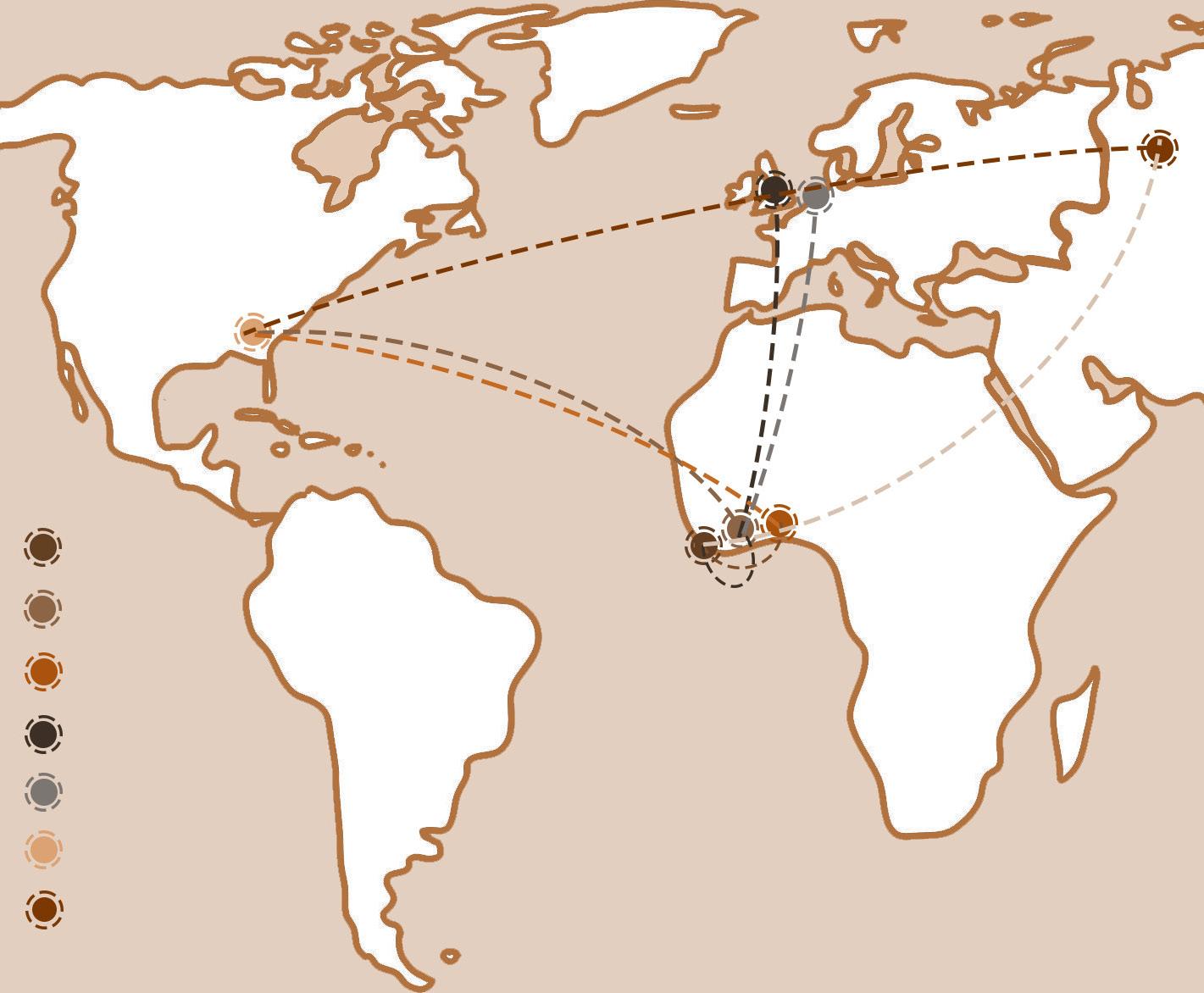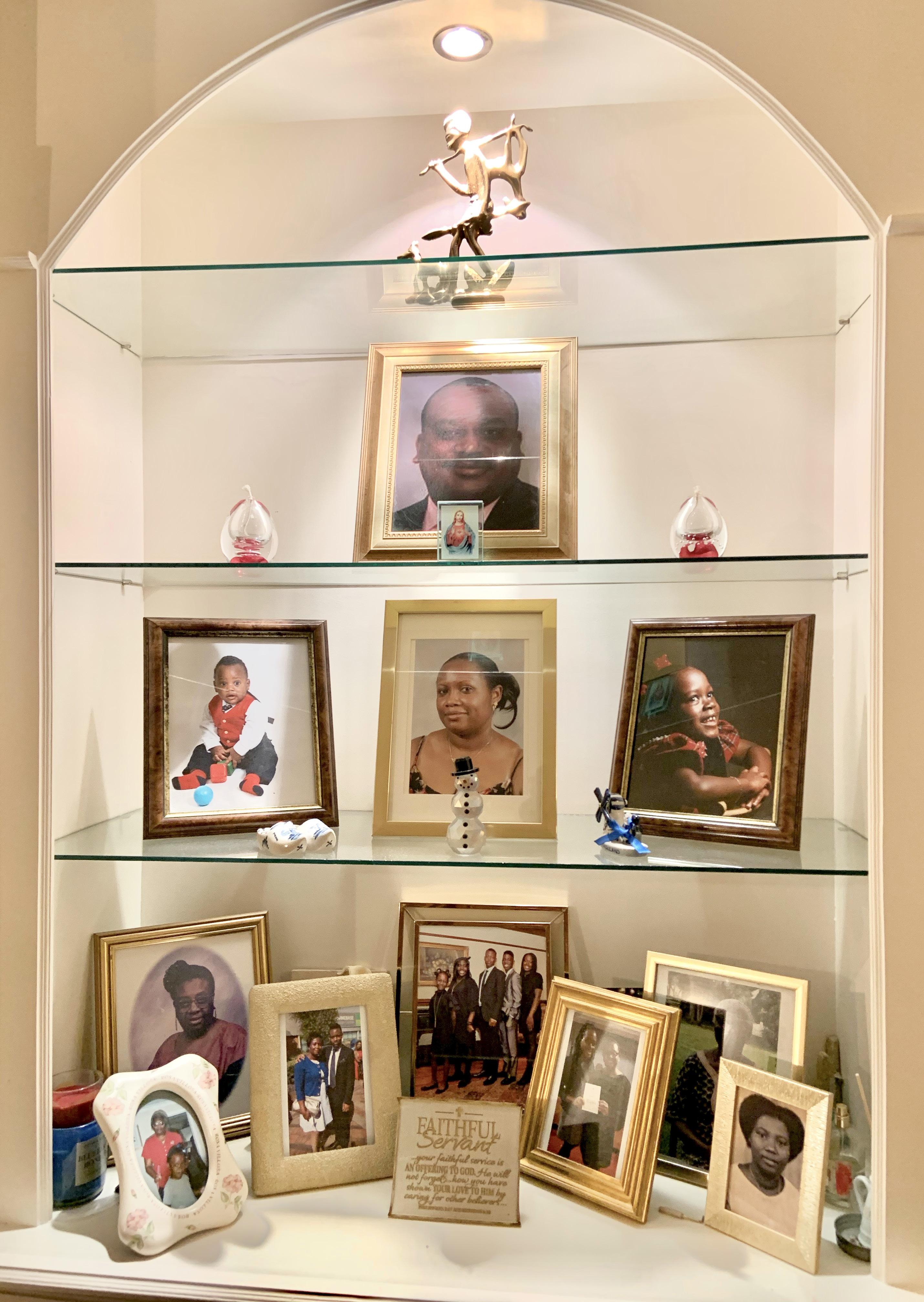
9 minute read
The War and its Effects
With family, home, and community being a valued part of life in Liberia, I asked my family the question, ‘how did the war effect your community and your home?’ The Liberian civil war brought destruction, separation and irreplaceable loss amongst communities (see Appendix F). It destroyed many lives, friendships, families, neighbours and humanity, and life quickly became a struggle for survival (see Appendix D). Civilians had to disperse and flee from their communities, especially when the war moved into Monrovia (see Appendix B).
In 1989 the war began, and Serina, Estelle and Henry were studying at university in Monrovia, Franco was living with his mother at home in Buchanan, and Ortelius was studying in the USSR (see Appendix C). As the war moved into Monrovia, Serina, Estelle and Henry had to quickly leave their university campus and return to their home in Buchanan, which in itself was a high risk, as there was the risk of being killed on their journey. One of their earliest traumatic memories of the war was a house opposite their own being set on fire by the rebels, and the shooting that took place all throughout the night (see Appendix E). Traumatic moments and memories like these are what started to tear apart what they knew as their home, and some of these memories have also resulted in many post-traumatic stress side effects to this day.
Advertisement
Liberia was quickly being taken over by rebels who were targeting men to become soldiers, raping women, and killing innocent people. Although their physical home was rapidly changing as it was being destroyed, this was even more of a reason for Liberians to hold on to what they knew to be the idea of home, which for them was their family, values and faith (see Appendix E).
Once they reached back home to Buchanan, life was slightly easier, which meant that in the beginning, fortunately for them and their community, they did not have to leave the area or their homes. During this time, my grandmother’s house became a place where they were able to offer help, food and shelter to those who had left their homes and travelled to the next safest county, like those shown in Figure 3, as their own areas had become dangerous to stay in due to the rebels taking them over (see Appendix B). Hollis makes a statement in his book, The Memory Palace, that ‘rooms aren’t just places we go to be alone. They are where we meet one another, and where we live together, not just as friends and intimates, but in wider society too’ (Hollis, 2013, p. 18), and these are the same values that Liberian communities practiced, and that allowed people to open their home up to so many others, especially in a time of need. Due to this, my family’s small home now hosted over 30 people, which was made of up six families that were all escaping the pressures of the war. The house consisted of three bedrooms, a lounge and a dining room; the bedrooms were given to the elders in the house, out of respect, and the younger people had to sleep on the floor wherever they could find a space (see Appendix B).
Despite the house now being occupied by more than 30 people, house chores still applied during this time and were still the responsibility of the children in the household. Therefore, tasks such as cooking still had to be done, however, this time on a larger scale, which posed as quite a challenge for Estelle to do. However, as it was their house, and everyone else was a guest, it was still their responsibility to make sure that everyone under their roof was fed (see Appendix E). The girls and the women of the household also had to take on most of the responsibilities of looking after the house themselves, as it was no longer safe for men to travel freely outside their houses to work and make money to support their family. Owing to this, gender roles within the household rapidly began changing, with women being forced to assume the role of the breadwinner. Some women unfortunately were also forced into prostitution or dating wealthy, older men just to support their families, and although they were not targeted to be soldiers like the men were, they were still at risk as they were travelling amongst armed rebels, who at times would stop and kill innocent people (see Appendix E). Luckily for Estelle, who was too afraid to leave the house due to this risk, her mother and godmother, although the elders of the household, would go out to get food, and living close to the coast proved advantageous in easily fishing for fresh produce (see Appendix B).
Refugees fleeing the Liberian war
The war also created a lot of shortages in resources for communities, such as food, essentials, electricity and water, thereby leaving Liberians having to adapt their way of living and become resourceful with what they had. For example, using wood or coal, and making their own oil to cook with, fetching water from the stream to bathe and cook with, and making their own personal hygiene products such as lime for deodorant, and ashes from the wood or coal for toothpaste and washing up liquid (see Appendix B). Serina, as the eldest sibling, described her role during the war as one In which she wore many hats, and one of those ‘hats’ was her ability to speak French. This skill provided her the opportunity to cross their closest border into Ivory Coast every now and then to buy essentials for her family; so, although Liberians were able to be resourceful and innovative with what they had, Serina’s knowledge of the French language allowed her to give her family this luxury (see Appendix E).
When the war first began and started to tear apart communities, the values and morals that these communities had allowed people, even from different communities, to hold together and support one another like they always had, and this was the main ‘concept’ of home that remained constant for people to hold onto during this time when there was a lot of chaos. It was also important to keep morale high during the war, so in efforts to do this everyone in my grandmother’s house would gather together in the garage in the evenings telling stories as a means of entertainment. During this time, many memories and friendships were formed (see Appendix B).
The war later intensified as rebels were coming into communities and killing people. As it was quickly becoming dangerous to live there, the people in Buchanan were now forced to leave their homes and quickly find refuge in neighbouring countries such as Ghana, Guinea and Ivory Coast. This meant that Serina, Estelle and Henry also had to leave their home abruptly in the middle of the night to seek refuge in Abidjan in Ivory Coast (see Appendix E). Franco on the other hand, being the youngest, stayed home with his mother locked up for days in the house, hiding from the ‘freedom fighters’ that were searching
houses for people that were associated with President Doe’s government (see Appendix D). Estelle recalls crying bitterly when they reached the decision to leave their home because she knew things were never going to be the same again (see Appendix B). Dr. Huettel, chair of the department of psychology and neuroscience at Duke University, carried out research on the link between physical space and memory, and came to understand that “we have memories and associations that are connected to all of those things that make houses so heavily connected to ourselves,”(Miller, 2018) which explains Estelle and many others emotional reaction to having to leave their home so abruptly, as the memories associated with a physical space such as home make it all the more difficult to part with.
After some time in Abidjan, Serina decided that Franco being at home was not beneficial for his education, so she returned to the country, to take her brother to Ghana where he could attend school. Franco had to be smuggled across the Ghanaian border, as Ghana did not want to accept any more refugees into their country, and being his first time away from home, this put him through a lot of psychological stress. He quickly had to learn how to depend on himself as he was alone and would go months without seeing his family. For Franco this meant that he had a huge detachment from home during this time, both mentally and physically, as he was still young, by himself, and away from everything that he knew to be home. This also put a lot of stress on his mother, as he was the youngest, so she was worried for his wellbeing and safety (see Appendix E).
Fortunately, in some aspects, for Ortelius his experience of the war was much different and not physically traumatic, as he was studying in the USSR at the time and did not experience the war first-hand. Nevertheless, it was still a difficult time for him as he had lost contact with friends and family members back home; he no longer knew where anyone was or lived, as everyone had to abruptly flee from their homes and communities. This left Ortelius unaware about what was happening in Liberia, as he was unable to communicate with anyone back home; he did not know whether his family and friends were alive, whether they had escaped, or if they had been separated (see Appendix C). So, although Ortelius did not suffer from any post-traumatic stress from his experiences of the war, he had to deal with the anxieties of being disconnected from home and not knowing anything about his family during this time, which proved particularly mentally challenging.
Once Franco was in Ghana, he never returned home (see Appendix D), however he later moved to the United States where he presently resides. The others also did not return home as Serina and Ortelius also moved to the United States, whilst Estelle moved to the United Kingdom, and Henry moved to the Netherlands. These journeys are depicted in Figure 4.
The civil war was tough for everyone and left many of my family members with a lot of mental, psychological and physical stresses, some of which still affects them today. The tragedies of the war had a major effect on what many civilians’ understanding of home was for them at the time, which made it difficult for them to find peace and comfort during such a traumatic experience. Many knew home to be their ‘physical’ home, community and family, which in a time of conflict was quickly being taken from them, therefore, in order to have a sense of home, peace, and comfort, whilst not physically being at home, they quickly had to understand home through different terms, such as traditions, memories, values and faith. The war was also very unexpected for the Liberian public, however this sudden turn quickly highlighted the value and importance of home, both physically and mentally, as it made people understand the value of what was taken from them, but it also made them appreciate their morals, values, memories, traditions, family and faith, even more so, as they would be able to hold on to these and honour them indefinitely.
- Liberia

- Ivory Coast
- Ghana
- United Kingdom
- Netherlands
- United States (Atlanta)
- USSR
Figure 4
Map portraying Serina, Ortelius, Estelle, Henry and Franco’s movements and journeys during the war.




